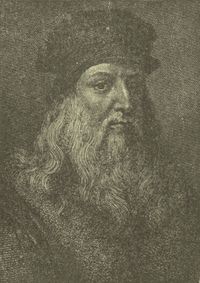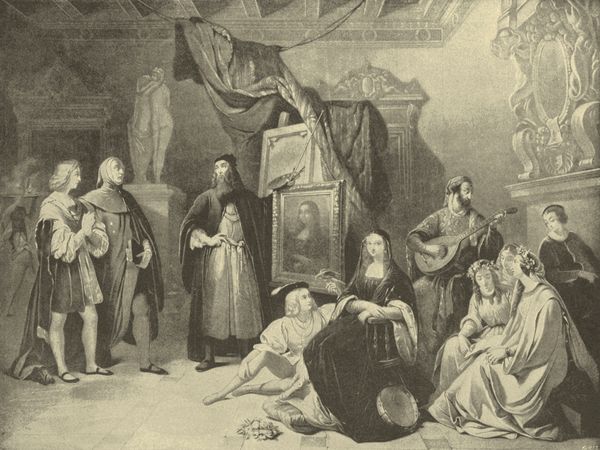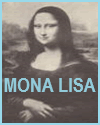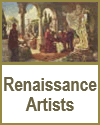 Leonardo da Vinci, born on April 15, 1452, in Vinci, Italy, is celebrated as one of the most extraordinary figures of the Renaissance period, epitomizing the ideal of the "Renaissance Man" due to his diverse talents and contributions across multiple disciplines. A painter, sculptor, architect, scientist, engineer, and inventor, Leonardo's genius extended far beyond his artistic achievements.
Leonardo da Vinci, born on April 15, 1452, in Vinci, Italy, is celebrated as one of the most extraordinary figures of the Renaissance period, epitomizing the ideal of the "Renaissance Man" due to his diverse talents and contributions across multiple disciplines. A painter, sculptor, architect, scientist, engineer, and inventor, Leonardo's genius extended far beyond his artistic achievements.
Leonardo's early education in Florence exposed him to the vibrant cultural and intellectual currents of the time. As an apprentice to the artist Andrea del Verrocchio, Leonardo honed his skills in various artistic techniques, soon surpassing his master. His early works, such as the Baptism of Christ, already displayed his exceptional talent.
Leonardo's artistic legacy is most prominently marked by masterpieces such as The Last Supper and the Mona Lisa. The Last Supper, painted in the Convent of Santa Maria delle Grazie in Milan, is renowned for its composition, emotional depth, and the innovative use of perspective. The Mona Lisa, with its enigmatic expression and masterful use of sfumato, continues to captivate audiences worldwide, symbolizing the pinnacle of Renaissance art.
Beyond his artistry, Leonardo's notebooks reveal a mind profoundly curious about the natural world. He meticulously recorded observations and sketches on anatomy, mechanics, flight, and botany. His anatomical drawings, based on dissections of human bodies, were unprecedented in their accuracy and detail, contributing significantly to medical knowledge.
 Leonardo's inventions, though often not realized in his lifetime, demonstrate his forward-thinking and innovative spirit. Designs for flying machines, armored vehicles, and various engineering marvels showcased his ability to think centuries ahead of his time. His studies of water flow, the mechanics of levers and pulleys, and his conceptualization of solar power and urban planning reflect a holistic understanding of the interconnectedness of nature and technology.
Leonardo's inventions, though often not realized in his lifetime, demonstrate his forward-thinking and innovative spirit. Designs for flying machines, armored vehicles, and various engineering marvels showcased his ability to think centuries ahead of his time. His studies of water flow, the mechanics of levers and pulleys, and his conceptualization of solar power and urban planning reflect a holistic understanding of the interconnectedness of nature and technology.
Despite his many unfinished projects, Leonardo's influence remains profound. His interdisciplinary approach, merging art and science, has inspired countless generations. Leonardo da Vinci died on May 2, 1519, in Amboise, France, leaving behind a legacy that epitomizes the spirit of the Renaissance--a relentless pursuit of knowledge and a profound appreciation for the beauty of the natural world. His work continues to inspire and inform contemporary art, science, and engineering, making him a timeless figure of human achievement. |
 Leonardo da Vinci, born on April 15, 1452, in Vinci, Italy, is celebrated as one of the most extraordinary figures of the Renaissance period, epitomizing the ideal of the "Renaissance Man" due to his diverse talents and contributions across multiple disciplines. A painter, sculptor, architect, scientist, engineer, and inventor, Leonardo's genius extended far beyond his artistic achievements.
Leonardo da Vinci, born on April 15, 1452, in Vinci, Italy, is celebrated as one of the most extraordinary figures of the Renaissance period, epitomizing the ideal of the "Renaissance Man" due to his diverse talents and contributions across multiple disciplines. A painter, sculptor, architect, scientist, engineer, and inventor, Leonardo's genius extended far beyond his artistic achievements.
 Leonardo's inventions, though often not realized in his lifetime, demonstrate his forward-thinking and innovative spirit. Designs for flying machines, armored vehicles, and various engineering marvels showcased his ability to think centuries ahead of his time. His studies of water flow, the mechanics of levers and pulleys, and his conceptualization of solar power and urban planning reflect a holistic understanding of the interconnectedness of nature and technology.
Leonardo's inventions, though often not realized in his lifetime, demonstrate his forward-thinking and innovative spirit. Designs for flying machines, armored vehicles, and various engineering marvels showcased his ability to think centuries ahead of his time. His studies of water flow, the mechanics of levers and pulleys, and his conceptualization of solar power and urban planning reflect a holistic understanding of the interconnectedness of nature and technology.










